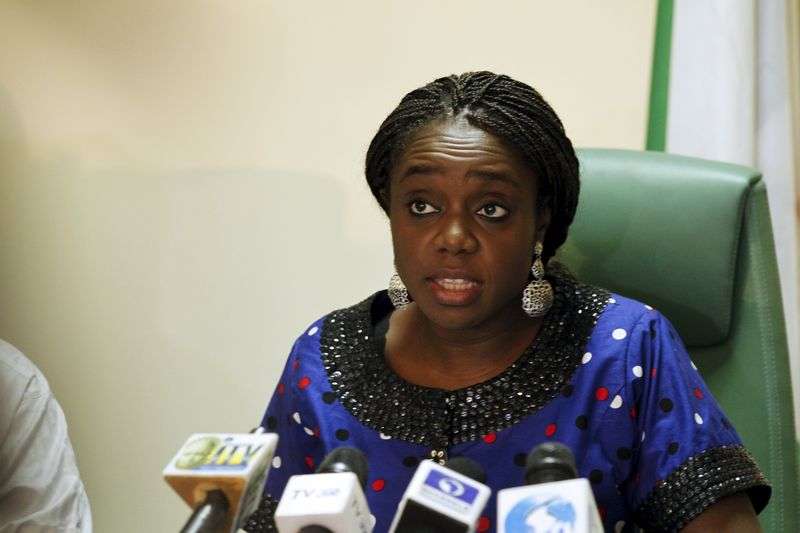- FG to Sanction Banks, Exporters Over Export Proceed Delay
The Federal Government has said it will henceforth sanction Deposit Money Banks, exporters and other stakeholders involved in the delay of repatriation of export proceeds.
This is contained in new import-export guidelines unveiled by the Federal Government, a copy of which was obtained by our correspondent.
The sanctions were contained in the 14-page Export Guidelines for Non-Oil Exports, 14-page Export Guidelines for Oil and Gas Exports, and 18-page Import Guidelines.
As a result, the CBN will begin to sanction banks for delay in remitting export proceeds made by exporters to the relevant Central Bank of Nigeria’s accounts.
Also, any late or non-rendition of returns of export proceeds to the CBN by banks will attract relevant sanctions.
Exporters and importers are also liable to heavy sanctions for any delay in repatriating exports proceeds and payment of certain levies, according to the guidelines.
The guidelines published by the Ministry of Finance, and signed by the Minister of Finance, Mrs. Kemi Adeosun, indicated that non-compliance with the requirements or provisions of the guidelines would attract various sanctions, including payment of heavy fines and termination of contract of service.
Adeosun said the sanctions were introduced in the new guidelines to ensure compliance with the regulations.
According to her, the sanctions introduced with respect to export are to ensure timely payment of the Nigeria Export Supervision Scheme levy and repatriation of export proceeds within the prescribed period.
She said it was also meat to forestall sharp practices; as well as compel government appointed pre-shipment inspection agents to ensure timely scheduling of inspection and issuance of the Clean Certificate of Inspection; regular monthly reporting, confirmation of proper documentation of export by the exporter and forestall exportation of substandard goods from Nigeria.
The sanctions stated in the guidelines read in part, “Non-compliance with the requirements or provisions of these guidelines will attract the following sanctions: No export permit shall be processed by the Department of Petroleum Resources for any exporter that defaults in filing the Nigeria Export Proceeds form and or in the payment of the NESS levy.
“Non-payment of the NESS levy within 30 days of the shipment date for oil and gas exports shall attract e penalty of 25 per cent of the outstanding NESS levy.
“Any exporter that defaults in the repatriation of export proceeds within the time limit specified in the Central Bank of Nigeria’s Foreign Exchange Manual shall be liable to a penalty of one per cent of the outstanding export proceeds.
“Any violation of these guidelines by banks, including but not limited to late submission of Nigeria Export Proceeds forms received from exporters to the PIAs; late/non-remittance of NESS fees paid by exporters to the CBN; late submission of NESS fee receipts to the PIAs and exporters; and late/non-rendition of returns of export proceeds shall attract appropriate sanctions by the CBN.”
Adesoun on Thursday said the Federal Government would commence the implementation of the revised import and export guidelines on January 1, 2018.
She said this in Lagos during a stakeholders’ sensitisation workshop on the revised export and import guidelines.
The workshop was organised by the Finance ministry in collaboration with the technical committees on the Nigeria Export Supervision Scheme and the Comprehensive Import Supervision Scheme.
The minister said the guidelines were sent to the relevant Ministries, Departments and Agencies in April for onward transmission to relevant stakeholders.
She added that they were also downloaded onto the ministry’s website for the information of the trading public.
Adeosun said, “After due consultation with the relevant key stakeholder MDAs, the effective date for full implementation of the guidelines was agreed upon, taking into account the need to give allowance for imports already prepared for shipment into Nigeria. In this note, I wish to announce that the export and import guidelines will be fully implemented with effect from January 1, 2018. However, goods already loaded for shipment to Nigeria prior to this date will not be affected by the policy.”

 Forex4 weeks ago
Forex4 weeks ago
 Naira4 weeks ago
Naira4 weeks ago
 Billionaire Watch4 weeks ago
Billionaire Watch4 weeks ago



 Naira4 weeks ago
Naira4 weeks ago






 Naira3 weeks ago
Naira3 weeks ago


 Naira3 weeks ago
Naira3 weeks ago






 Naira2 weeks ago
Naira2 weeks ago
 Economy4 weeks ago
Economy4 weeks ago
























